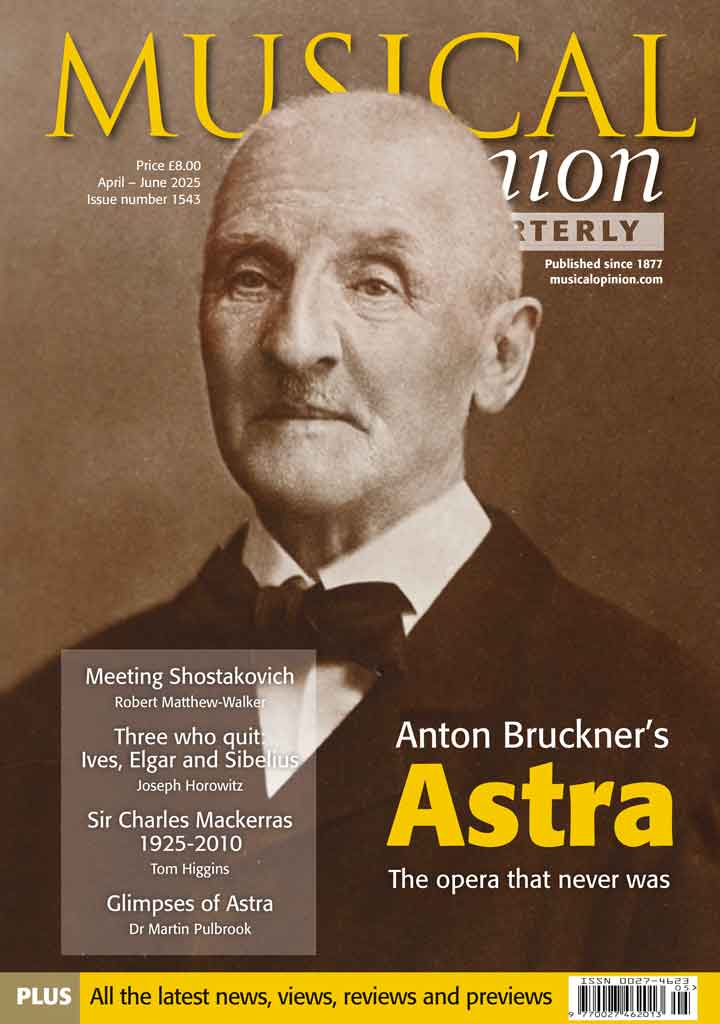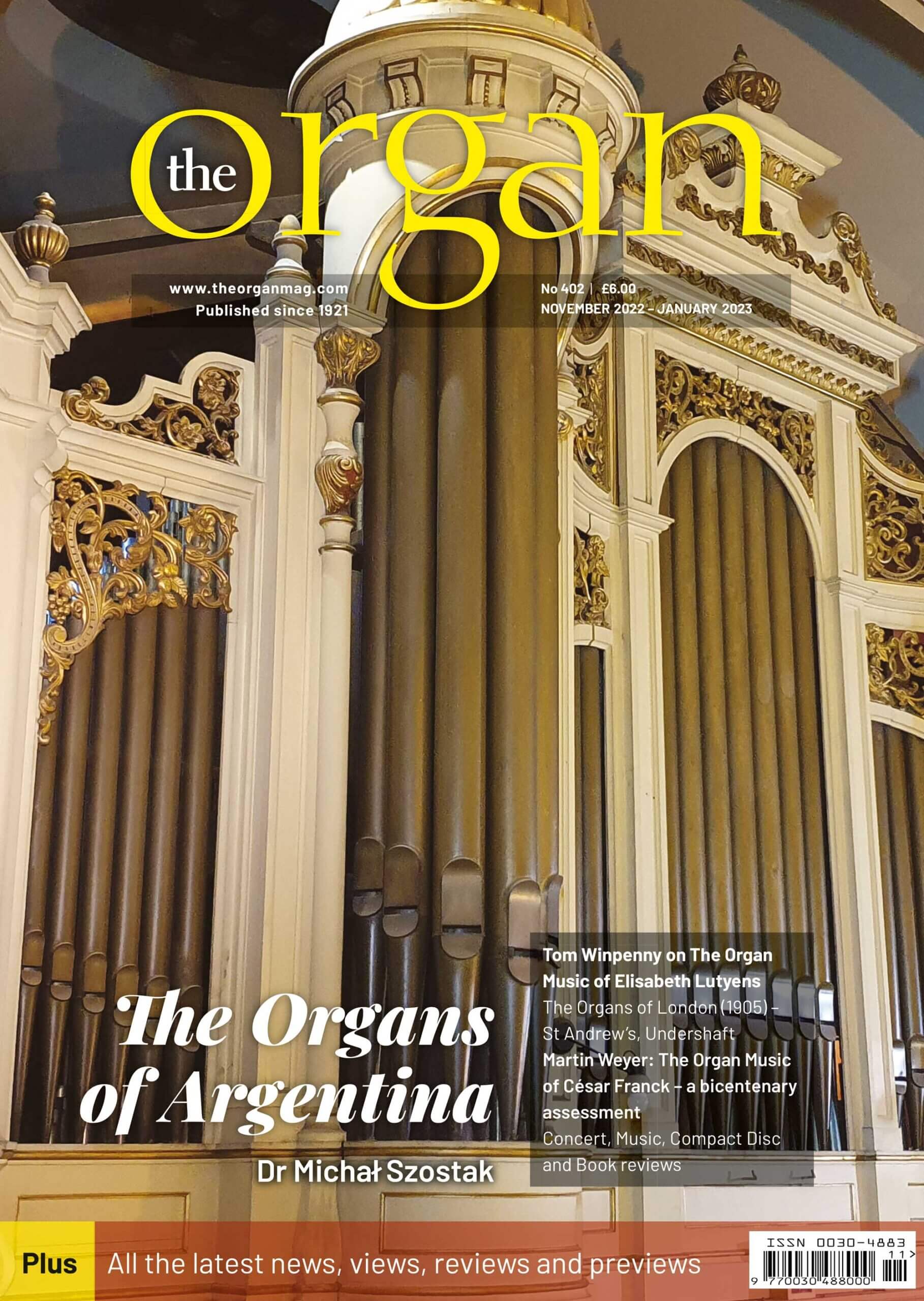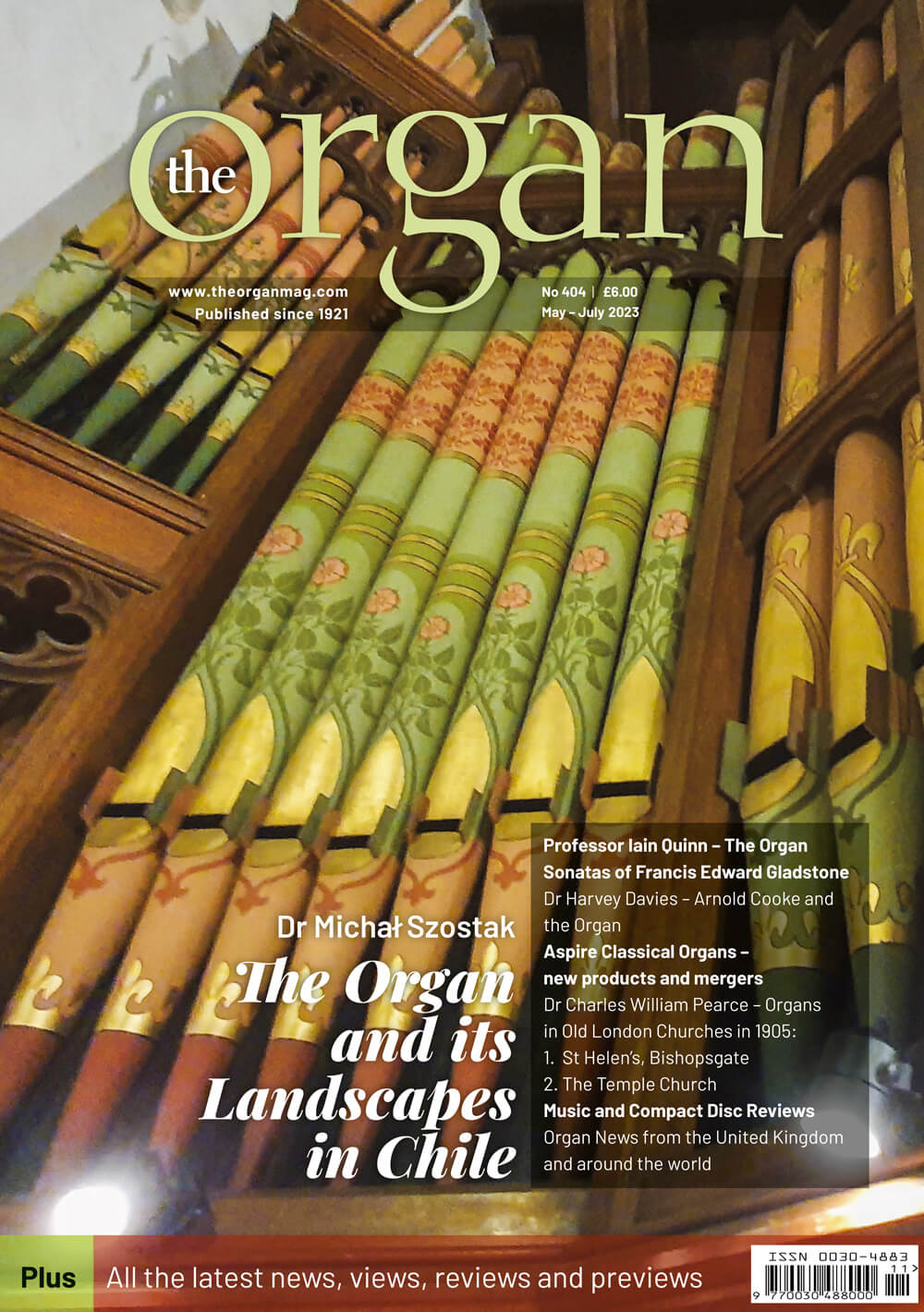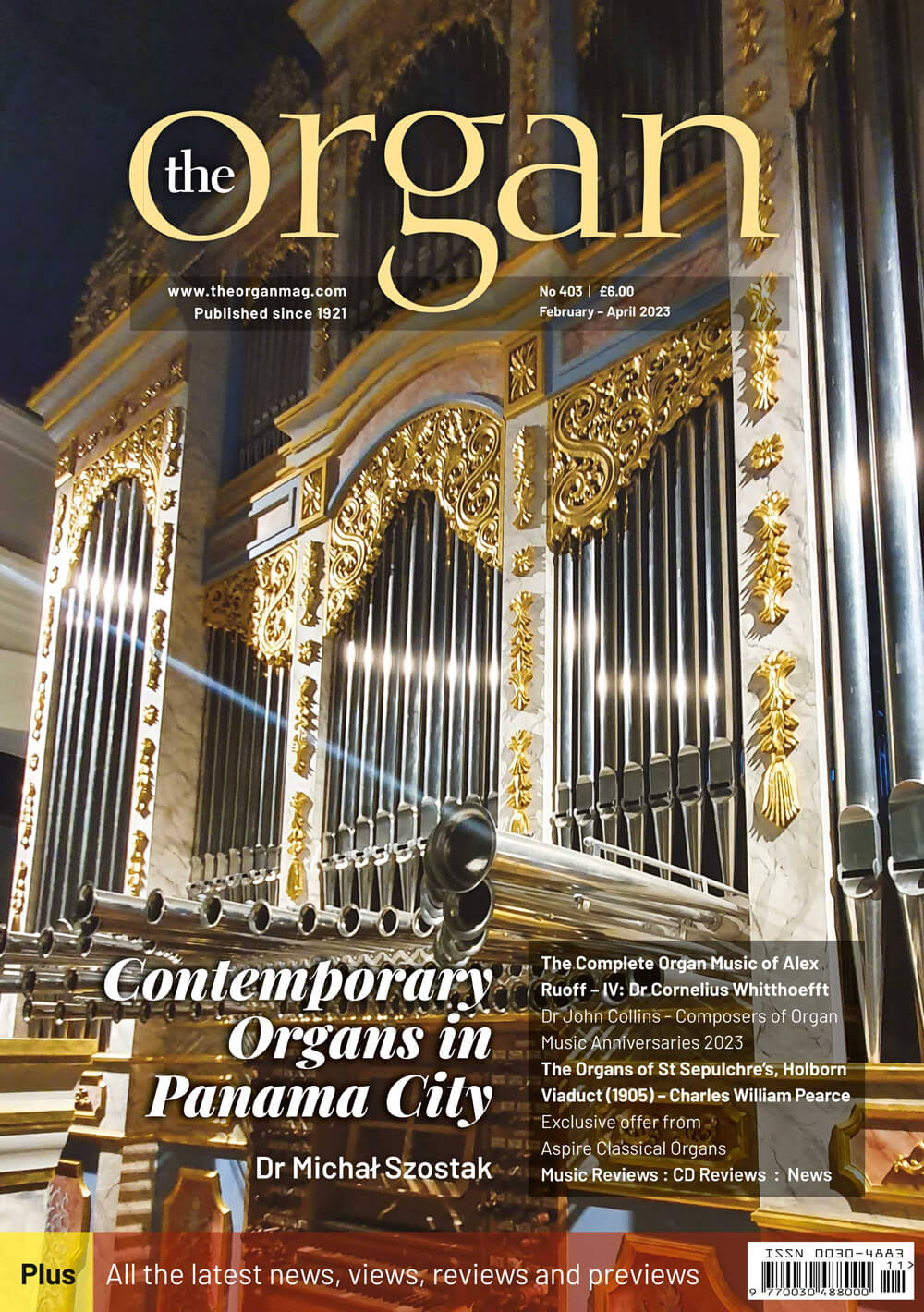

Current Issue
Reviews
Handel: Jephtha: Royal Opera House, London
‘That whatsoever cometh forth of the doors of my house to meet me, when I return in peace from the children of Ammon, shall surely be the Lord’s, and I will offer it up for a burnt offering.’ Such is the vow of Jephtha, the eponymous hero of Handel’s final Oratorio....
Guest Editorial
Britten: Death in Venice
Marx in London!
Scottish Opera Glasgow – Jonathan Dove: Marx in London! This opera was first heard at the Stadttheater Bonn in 2018 in a staging by Jürgen R. Weber in commemoration of Marx’s 200th anniversary. Weber’s production is a satirical account of one day from Marx’s life in...
Berlin Staatsoper unter den Linden – Wagner: Tannhäuser
What happens when an opera house asks a ballet dancer and choreographer with her own dance company to produce an opera? There is a lot of ballet where normally there is not, and there is hardly any Personenregie. Tannhäuser has a place for ballet, normally given to...
The Ring Cycle in Sofia, Bulgaria
Parsifal Parsifal was the sixth Wagner opera to be produced at the Sofia Opera by Plamen Kartaloff in his mission to develop a Wagnerian tradition in Bulgaria. First staged in 2015, the preparation for the opera was assisted by Richard Trimborn. Kartaloff believes...
ENO – Rhinegold
Wotan may be a god, but he never strikes me as the brightest button in the box. His decision to give away Freia as payment to the giants for Valhalla, his castle in the sky, has clearly not been thought through. So too is the Arts Council’s decision to uproot English...
Bari – Teatro Petruzzelli: La Traviata
Is it possible the there is one Musical Opinion reader who has never seen La Traviata? And maybe is it also possible this reader has not formed an opinion about the central character before even seeing the opera? And maybe this reader also has a great degree of...
Opera North: Rigoletto
If you stroll around the ever-expanding Salford Quays complex these days, you will see a very different Media City to the one when the Lowry Theatre first opened more than 20 years ago. BBC and ITV studios, hotels, bars, restaurants, apartment blocks, trams and an...
New Recital Series at Leighton House from Lisa Peacock Concert Management
Lisa Peacock Concert Management Ltd announces the greatly anticipated appearance in London of Juan Pérez Floristán, Gold Medallist of the Arthur Rubinstein International Piano Master Competition 2021 in music by Chopin, Liszt, Wagner/Liszt and Beethoven on Saturday...
Explore By Topic
Munich Bavarian State Opera – Donizetti: The Daughter of the Regiment

The last new production of Donizetti‘s opéra–comique La Fille du régiment at the Bavarian State Opera was in German (as Die Regimentstochter) and dates from September of 1935. The nearly 90-year gap is at least partly due to a general rejection in Germany of anything French during and immediately after the war years. It is also due to the State Opera generally turning up its nose at most lighter works, pointing them across the city to the smaller, more folk-minded Gärtnerplatz-Theater.
Donizetti‘s score, though perhaps not his finest, is full of melodic inspiration, is full of humour and even boasts a touch of social criticism. It also demands two first-rate singers and, as seen in the Nationaltheater on January 3, the State Opera has mined pure gold. As Tonio, Spanish tenor Xabier Anduaga, not yet 30-years old, was nothing short of sensational. His voice is tonally rich, his musical instincts unfailingly appropriate and his top notes – including flawlessly facile high Cs in O mes amis – were thrilling. His Marie, South African Pretty Yende, showed perfect coloratura, glittering top notes, great sensitivity in Par le rang et par l‘opulence and a wonderful comedic touch in the opening scene of Act 2 in which she, both musically and dramatically, tries in vain to fit into an aristocratic mould. Bass Misha Kiria was a meliflously comic, sympathetic Sulpice and it was a pleasure to welcome back Dorothea Röschmann, as La Marquise de Berkenfield, and more of a pleasure to note that her voice is more than intact. Conductor Stefano Montanari led with verve and spirit. Damiano Michieletto‘s production was witty, if it at times suffered from over-activity. Once again, the stage director felt it necessary to fill the overture with pantomimed stage action.
Although the action itself was cleverly choreographed, it distracted from one of Donizetti‘s most imaginative overtures. Sets by Paolo Fantin were sparsely suggestive of time and place. The Achilles heel of the evening was, however, the decision to replace the all-important dialogue between sung numbers with German language narration by actress Sunnyi Melles in the role of the Duchess of Crakentorp. Not only did this unbalance the opera, reducing it to a series of musical numbers interrupted by narration, but the texts themselves, consisting of a combination of Dramaturg Mattia Palma‘s Italian narration translated into German by Saskia Kruse with the addition of Sunnyi Melles‘ own texts, turned comedy into embarrassing travesty. Ms. Melles‘ delivery was outrageously over-the-top, devoid of wit and tasteless at best.
The nadir of this one-woman show was the Duchess‘ comment in Act 2 that Marie was unacceptable because – translated from the German – she was “different“. Considering that Pretty Yende‘s skin colour is indeed “different“ than anyone else onstage, this backhanded remark might well be interpreted as racist. As there were titles projected in two languages, there was no reason not to include at least parts of the original dialogue. To do so would have rescued wonderful singing and a clever production from its descent into farcical parody.
Jeffrey A. Leipsic
Photos: D.Roeschmann / c_Geoffroy_Schied



